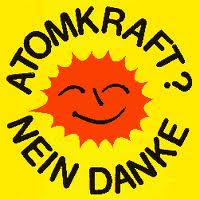Activists fighting Germany’s only uranium enrichment factory see chances of it being closed down improving as three major owners of it try to pull out. Media have reported that the behemoth power companies RWE and Eon want to sell their stakes in Urenco, which has German, Dutch and British owners. The British government is also said to be thinking about selling its shares and the Dutch don’t look like wanting to increase theirs.
Urenco also has plants in Holland, the UK and the United States. Their German one is located in Gronau, central northwest Germany, near the city of Münster. The Gronau opponents think the French Areva and the Russian Rosatom might be interested in any shares that become available. No one else looks interested. The activists think the German anti-monopolies authority would probably disallow Areva and Britain wouldn’t want the Russians in the company.
“Both RWE and Eon are in debt and in recent years invested only in dinosaur technologies like coal and nuclear power,” writes an alliance of anti-nuclear organizations called SofA Münster. “Now the changeover to renewable energies is to be funded by selling off some of their operations. That RWE und Eon have lost interest in Urenco – which even after Fukushima still described itself as an enterprise with a future – is also due to our consistent protests.” Urenco also supplied Tepco, the company that owns the power stations massively leaking radioactivity in Japan after the earthquake and tsunami.
“An insider told media that there was not much joy in owning Urenco shares because of constant protests against the company – at shareholder congresses, at uranium transports and recently with 15,000 people.”
“What else does anyone expect about a company that exports its uranium waste to Russia, keeps having accidents and has no security plans in case anything goes wrong.”
SofA calls on the government of Social Democrats and Greens in the state of North Rhine-Westphalia, where Gronau is located, to immediately close down Urenco, forbid the dangerous uranium transports and stop plans to build a storage facility for 60,000 tonnes of uranium waste.
The activists are calling people to a protest camp near the Gronau plant on the 17th and 18th of September. Russian protesters are expected to take part.
Next waste to Gorleben 25-28 November
Meanwhile the activists organising resistance to the nuclear waste dump at Gorleben in northern Germany say they’ve found out that the next train bringing back German waste from France, where it was processed, will run from 25 to 28 November.
Shipments to Gorleben usually rouse scores of thousands of demonstrators and up to 20 thousand police.
Responding to reports that radiation measured at the fence around a Gorleben hall containing waste exceeds legal limits, a police trade union says that is making its members feel insecure.
The Deutsche Polizeigewerkschaft (DPolG) said its members used to be accommodated in recent years right next to the dump. “Unless all doubts about the danger to health are resolved, the shipment must not roll,” the union’s regional leader said.
About two out of three Germans regularly show in opinion polls that they oppose nuclear power generation.
Following Fukushima, the conservative-led government ordered eight of the country’s 17 nukes closed immediately and the other nine have been legislated to be shut down step by step from 2015 to the end of 2022. The nuclear industry says it will challenge this in court.
Chancellor Angela Merkel, a physicist and former environment minister, known so far as a glowing protagonist of nuclear power, has said Fukushima changed her mind. Even in a high-tech country like Japan the risks of nuclear power are beyond control, she now says.
Anti-nuclear activists don’t trust Merkel’s turnaround and point out that she is going ahead with plans to turn Gorleben, where waste is now in a hall, into a permanent repository in a salt deposit which geologists and other experts say is unsafe.
Amongst other things, the salt contains natural gas pockets, is in touch with ground water and has too little rock cover.
The opponents point to a former salt mine containing nuclear waste, Asse II, near the northern town of Wolfenbüttel, in which about 12,000 litres of saline solutions are collected daily that no one yet knows what to do with.
The incidence of cancer around Asse is above average but authorities deny that has anything to do with the low-level waste in the pit.

